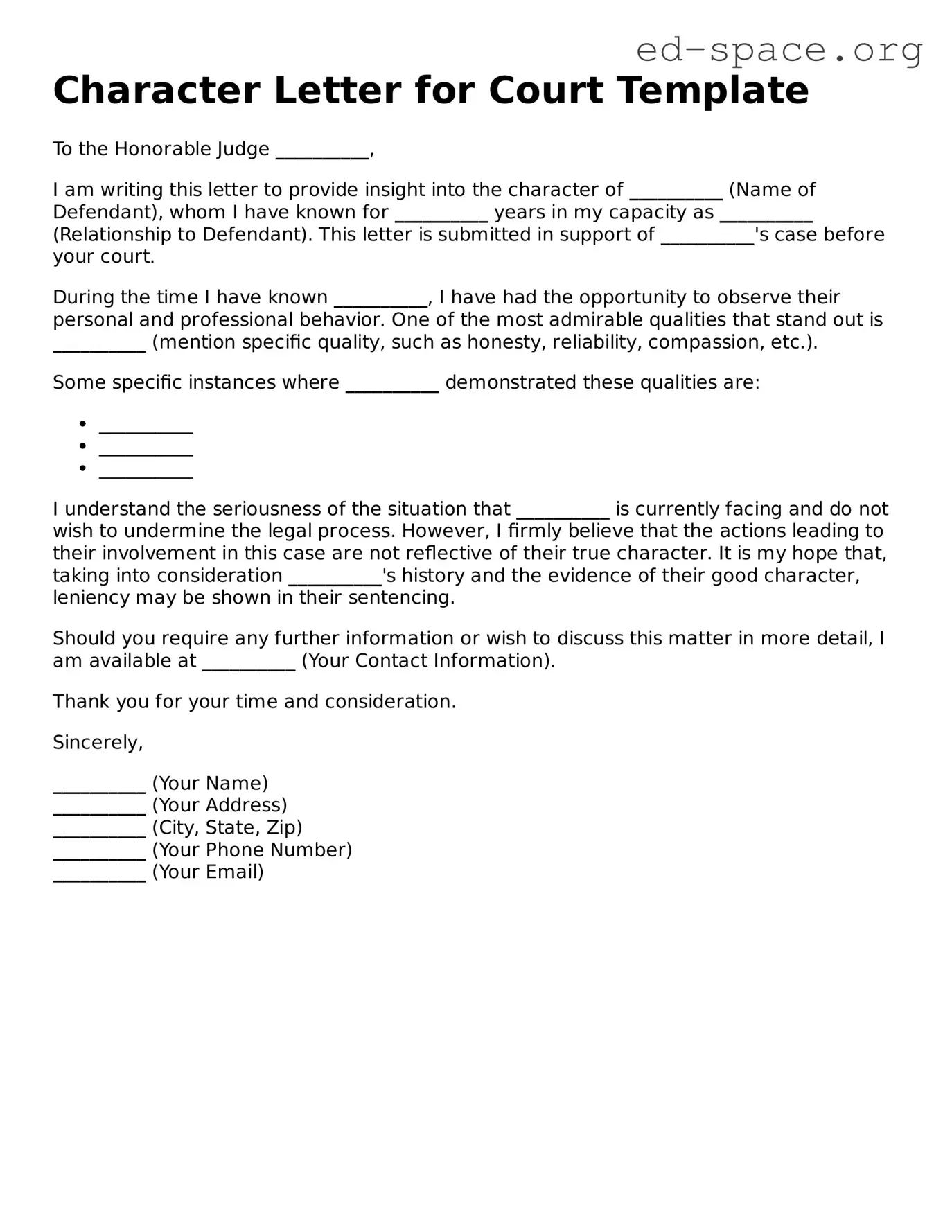Fillable Character Letter for Court Template
A Character Letter for Court is a document that provides a detailed account of an individual's moral and ethical qualities, typically submitted to a judge or magistrate prior to sentencing or in other legal proceedings to influence the court's perspective on the character of the defendant. This type of letter can come from a variety of sources, including family members, employers, or community leaders, all aimed at shedding light on the positive aspects of the individual’s character. For those interested in supporting someone through legal challenges, properly understanding how to craft such an impactful document is crucial. Click here to learn more about filling out the Character Letter for Court form.
